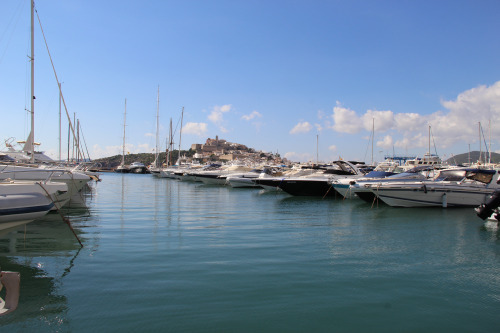
The
emergence of numerous new peer-to-peer boat rental sites has reignited a heated
debate at the heart of the French Nautical Industries Federation, the equivalent of the British Marine Federation in the UK. Currently this method of rental is not permitted for UK registered boats within British waters, however a handful of companies offer UK customers the chance to rent a boat in the Mediterranean using the peer to peer model.
In France, several companies have been growing in popularity in recent years. It has in
turn highlighted certain grey areas, and some serious shortcomings previously
disregarded or completely avoided by governing bodies and policy makers. What
exactly is the responsibility of a skipper? What about boat sharing? Or static
boat rental? Not least concerns surrounding obligatory safety equipment. Just
like Uber and Airbnb, peer-to-peer boat rental is able to offer its services at
rock bottom prices thanks to vague regulations and legal loopholes.
Peer-to-peer
boat rental has in fact always existed. Whether a work colleague rents you his
boat in St Tropez during the month of August, or via an advert in Yachting
Magazine, on Ebay or Gumtree, it is the same concept. For
an owner, renting out their boat to a client has been common practice for many
years. Therefore the concept is not completely new. On the other hand,
within the past 2 years websites entirely dedicated to boat rental have popped
up all over the internet, covering the entire process, from the initial search
for a boat, to requesting a quote, right up to making a booking and finalizing
the contract. What are the prospects for these new online platforms and how
might they impact the world of boating?
One of the
aims of the French Nautical Industries Federation is to enable greater access
to pleasure boating. This is of course made possible thanks to peer-to-peer
boat rental! In reality it is very difficult for a professional to rent a
boat for just a few hours. The cost of getting a boat ready, cleaning and the
check-in process are all expensive and therefore it is only worthwhile for a
fee of at least €600 or €700. However, there are no such constraints for private owners, who are not
reimbursed but can as a result afford to provide a local service, with a single
boat outing costing only €100 or €200 euros. Peer-to-peer rental makes
boating more accessible and allows the industry to reach a much larger
market of pleasure seekers who may in turn become the boat owners of the
future!
However, in
economic terms, is this type of rental, which is short-term, in small numbers,
and extremely seasonal, really sufficient enough to support all of these new
third party sites? It’s difficult to tell. All the more give that unlike the
car or apartment rental market, boating is extremely restricted, and suffers
greatly from seasonality. Only one or two sites will be able to stand out
from the crowd and make their business profitable if they can attain a
sufficient number of clients and bookings throughout the year.
In order to
best respond to the needs of their clients and to offer a larger catalogue of
boats, within the last year these peer-to-peer rental platforms have
diversified to include professional renters. Better service, a greater
number of boats and quicker response times… what’s not to like? It is often
much simpler to get a comprehensive and reliable quote from a professional than
from an unknown private owner. Indications suggest that on average more than
60% of boats on these platforms are from professional fleets. Surely there
is therefore nothing to alarm sailors or supporters of the collaborative economy?

Up until
now there have been no major issues. Almost all of the collaborative property
and car rental sites have also incorporated offers from professionals. However,
problems can arise with regards to the quality of listed renters. When
an agency chooses its partner fleets, there can be a variety of different boats
and renters each with questionable ratings. These sites undoubtedly offer an
invaluable chance for smaller struggling operators to promote their boats to a
whole new client base at very attractive prices. But when the moment finally
arrives to step aboard your chosen boat, a deal which seemed great online can
in reality be a total nightmare. It is important to watch out for offers that
are just too good to be true!
The boat
rental market is already very fragmented and confusing and these new platforms
only complicate matters further. Therefore first time clients should ensure
they read reviews left by other users very carefully or contact an
advisor, who should be able to provide verified photos of the boat, copies of
the marine insurance and certification of where the vessel is registered.
The French
Nautical Industries Federation has also highlighted possible issues surrounding
the responsibility of the owner in the case of boat sharing. Indeed, certain
boat owners prefer to only rent out their boat if they can also be present
on board. They are then paid for the rental of their boat and their service
as a skipper. This option is only possible however if the owner has the
necessary qualifications (for example Master 200) in order to welcome clients
aboard and to be covered in the case of an accident. With regards to boat
sharing, it is advisable look at specialist crew exchange websites which
detail offers from every corner of the globe.
Overall,
peer-to-peer boat rental seems to be an effective solution to target some of
the latest challenges facing the nautical industry. Improved accessibility and
the possibility of more short term rental puts pleasure boating within the
grasp of a new generation of clients. Nonetheless this new trend must be
closely monitored, especially for rental periods of several days and those
further afield. Above all, the most important details should be made clearer,
to ensure that customers can enjoy a stress free experience, and set sail
safely and securely.
Victor Hugo
once said “The sea is a place of both discipline and freedom. To lose
discipline is to lose freedom.”
Nevertheless,
the ‘uberisation’ of boating has allowed important questions to be asked
regarding the nautical industry as a whole and its many forms, in particular
the changing practices within the boating sector and the growing demands of its
customers.



